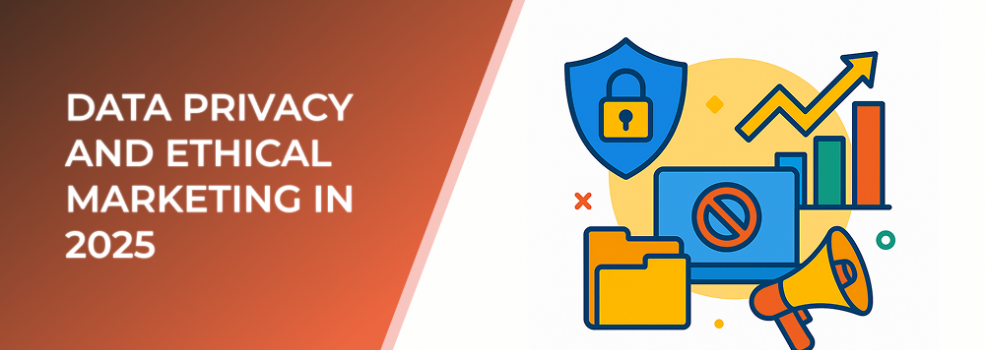In 2025, the intersection of data privacy and marketing ethics defines the future of digital advertising. With stricter data regulations, advanced tracking limitations, and increasingly informed consumers, marketers are challenged to rethink their strategies for collecting, managing, and using customer data.
The New Landscape of Privacy
Over the past few years, global data privacy laws have expanded dramatically. More than 130 countries have enacted some form of data protection legislation, and by 2025, 78% of internet users report that they regularly review how their data is being used by online brands. Transparency is no longer optional—it’s a requirement for brand credibility.
According to a recent industry survey, 68% of consumers say they are more likely to buy from a company that clearly explains how it uses personal data. Ethical marketing practices now directly influence purchase decisions and long-term brand loyalty.
Ethical Marketing: Beyond Compliance
Ethical marketing in 2025 extends beyond simply following the law. It involves actively protecting consumer rights and communicating transparently about data use. This means prioritizing:
-
Consent-based personalization: Customers opt in for tailored experiences, rather than being tracked unknowingly.
-
Data minimization: Collecting only what is needed and using it responsibly.
-
Clarity in messaging: Avoiding manipulative or misleading advertising tactics.

64 % of consumers report avoiding a business entirely over concerns about how their personal data would be handled
Ethics-driven brands are not only earning trust but also seeing measurable performance benefits. A 2024 study found that brands adhering to strong privacy standards experienced 32% higher customer retention rates compared to those using aggressive targeting strategies.
How AI and Automation Fit In
Artificial intelligence has revolutionized how marketers segment audiences, predict behaviors, and optimize campaigns. However, 2025 demands a balance between automation and accountability. Algorithms must be designed to avoid bias, ensure fairness, and respect user consent.
Companies that integrate ethical data practices into their AI frameworks report improved customer engagement and reduced churn. This alignment between technology and ethics defines the most successful marketing teams today.
Building Trust Through Transparency
Modern consumers value honesty. Being upfront about how data is gathered and processed strengthens customer relationships. Marketers can achieve this by:
-
Offering simple, readable privacy policies.
-
Providing real-time control over personal data.
-
Communicating how data-driven insights improve customer experiences.

83 % of consumers consider a brand’s ability to protect their data before making a purchase decision
Brands that adopt these strategies report significant improvements in reputation metrics and customer satisfaction.
The Future of Marketing Ethics
As the line between personalization and intrusion continues to blur, the most successful marketers will be those who respect data boundaries while still delivering relevance. Ethics and privacy are no longer separate from performance—they are its foundation.
In 2025 and beyond, building trust is the new marketing currency.
Further Reading:

